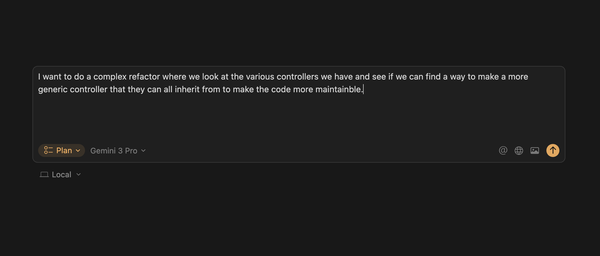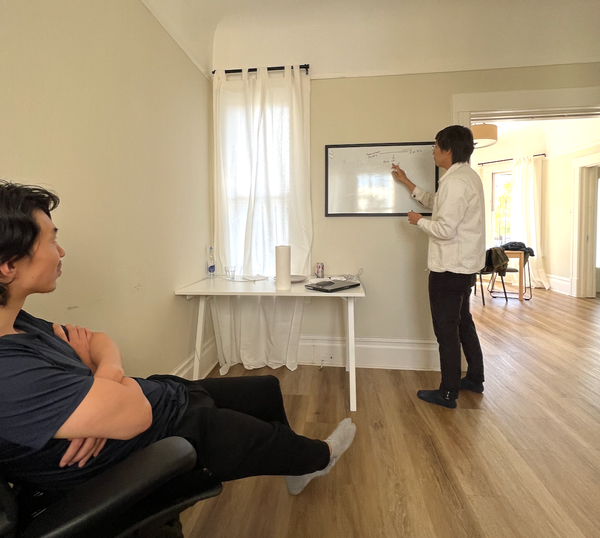Conscription in the name of science
How would the landscape of hard problems change if everyone had to spend at least 6 months of their lives working on them?

How would the landscape of hard problems change if everyone had to spend at least 2 years of their lives working on them?
Think about that, while I tell you a story about a hero named Eff.
Eff isn’t an academic, in fact he didn’t finish high school. He left home at 16 to pursue a career as a chef. After doing that for 12 years, he opened a drug store. He sold that business and decided to get his pilot’s license while working in federal politics. Four years later he opened and sold a bar, and finally at age 48, settled into real estate where he would spend the rest of his working life.
Eff holds no degrees in mathematics or engineering but can build pretty much anything (he loves making furniture). He can also fix or repair pretty much anything, and other than a near miss he had a month ago with a tree in his backyard, he can think through complex problems and invent novel solutions. If you explain a problem and give him a set of contraints, he will come up with a solution. Sometimes it’s optimal, sometimes it has already been tried, sometimes it doesn’t work, but he will develop a solution that can be tested.
Really smart people think humans have some hard problems to solve. Hard problems that need to be solved in our lifetime. And in a time when some of our best and brightest are being pulled away from these hard problems.
What can we do? We need to get to Mars.
Eff isn’t going to help us get to Mars. SpaceX won’t hire him, but maybe they should. Granted I am biased, Eff is my Dad, and he’s one of the smartest people I know.
Every year, Eff and I share a chilly 6 hour drive up to our cottage. At some point we always end up talking about hard problems. Last year it was robots, this year, we talked about energy. Eff had an idea. What if the road had millions of little springs embedded into the pavement, such that when cars rolled over them, they pushed down and created a little bit of kenetic energy. Could you harness that energy into something useful or powerful? I have no idea, and neither does he, but I think it might be worth asking the question.
I am not saying that little springs are the answer to all our problems, but he is always coming up with ideas like this. Eff’s problem is that he doesn’t know what the really hard problems are. Or if he does, he doesn’t have the context or the constraints to try and solve them. What he needs is the scene from Apollo 13 (if you are an engineer you are nodding your head right now. You don’t even need to click the link because you know exactly what scene I am taking about). A team of people are tasked with fitting a square peg into a round hole, and guess what… they do it.
What if, at some point in his entrepreneurial career Eff had been forced into a similar situation. What if someone gave him a really hard problem, something completely over his head: Solar energy efficiency, the traveling salesman problem, getting to Mars, growing plants in the dessert, efficient hydroponics, harnessing the casimir effect, protein folding, supersymmetry, cold fusion… you get the idea. I think he could help solve it.
Let’s re-invent conscription in the name of science.
Every able minded human being would be legally bound to work on a hard problem that has the potential to dramatically aide human beings, alleviate suffering en masse, or ensure the survival of our species for two years of their life. One year right after coming of age: 18–25 and another closer to the average age of retirement, 55–65. This would make sure that we always had new minds and older, wiser minds working on hard problems.
Similar to parental leave, employers would cover a certain amount, and the government would cover the rest. If you don’t have a job or your employer cannot afford it, then you would have a longer, less focused contract but you would still have to work on / think about a very hard problem for a given amount of time.
One of the hardest problems would be defining / scoping the hard problems in such a way that everyone can contribute. Obviously Eff isn’t going to solve any loop-quantum gravity equations. But I believe there is something else he could help with. I don’t know what that is, but I know we can all be useful. That is why I chose the word conscription. During the Great Wars, some men and women were physically or mentally stronger. This made them more “useful” for certain tasks, but everyone contributed something.
Relying on volunteers or the current system isn’t enough because a terrible math teacher in the 4th grade can make or a break a scientist. There are many would be engineers who had their curiosity extinguished by people, or circumstance. If everyone was legally bound to lend their minds to science, more progress would be made. I do not have a good idea or system for how we would organize or manage this, but we could make it one of the first hard problems to solve.
Call it blind optimism, but I feel that everyone can add value in solving these hard problems. Eff won’t work at SpaceX, but he can help us get to Mars. He just need to know what the hard problems are, and be given time to try and solve them.
It’s not that I’m so smart, it’s just that I stay with problems longer. -Einstein
To Minds!




